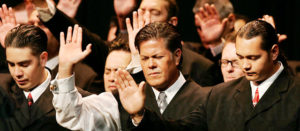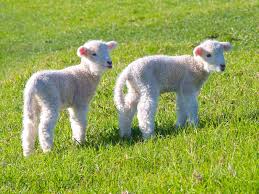
Many people are aware of the long-standing alliance between conservative forces and religion. Indeed, the party with the strongest correlation between voting for them and being Christian was the Conservative Party, which was 0.37.
The Conservative Party of New Zealand appeals to much of the same sentiment as the Christian Heritage Party when it was run by now convicted child molester Graham Capill.
Christians are also significantly more likely to vote for the National Party – the correlation here is 0.29. This is significant but barely so, and perhaps even less so once one considers that this correlation can be well explained by the fact that both Christians and National voters tend to be older than average.
However, this is not an area where the Labour Party forms a natural counterweight. Voting Labour in 2014 has a correlation of 0.10 with being Christian. Neither does New Zealand First – voting for them and being Christian has a correlation of -0.11. Neither of these two are significant.
The significant one is between voting Green in 2014 and being Christian: this is a very strong -0.57. This suggests that the religious see very, very little merit in what the Greens have to offer.
Although this is true, the likely reason for it is that many Green voters are either young students – who are the group least likely to be Christian – and many who are older have postgraduate degrees in the sciences, the holding of which has a significant negative correlation with being Christian.
Many are already aware of the widespread cynicism of Maoris towards Christianity, which is often seen as a pack of lies that was told to confuse them while their land could be stolen. Not surprisingly, then, being Christian has a significant negative correlation with all of the parties that have heavy Maori support, apart from New Zealand First.
Being Christian has a correlation of -0.44 with voting Maori Party in 2014, -0.41 with voting ALCP and -0.40 with voting Internet MANA.
Because there are so many Christians – slightly fewer than 50% of the population – it’s worth taking a look at the next level down.
At this level, Anglicans seem to form the foundation of the national freemasonry. Being Anglican has a correlation of 0.41 with voting National in 2014, one of 0.34 with voting Conservative and one of -0.59 with voting Labour.
To all other parties Anglicans are mostly indifferent. The correlation between being Anglican and voting ALCP in 2014 was -0.01, with voting New Zealand First it was 0.17, with the Greens it was -0.06, with Internet MANA it was -0.07, with ACT it was -0.23 and with the Maori Party it was -0.06. None of these are significant.
Their eternal enemies, the Catholics, are predictably therefore more internationalist. There is a significant postive correlation between being Catholic and voting Labour in 2014 (0.28), and with voting ACT (0.24).
Also predictably for a religion that has a significant negative correlation with both being European and being Maori, being Catholic has a significant negative correlation with voting for New Zealand First in 2014 – this was -0.44. Other negative correlations existed between being Catholic and voting for the ALCP (-0.27) and voting Conservative (-0.26).
Presbytarians, for their part, seem like a kind of less Maori-friendly Anglican. The correlation between voting National in 2014 and being Presbytarian is almost identical with that of being Anglican – this is 0.40. The major difference is that the correlation betwen voting Labour and being Presbytarian is a mere -0.22, which is not significant.
The correlations between being Presbytarian and voting for any of the Maori-heavy parties were negative. With voting Internet MANA it was -0.40 and with voting Maori Party it was -0.37.
These correlations reflect the degree to which Presbytarianism is more common in the Southern South Island, which was settled much more heavily by Scots than by the English and where few Maoris live.
*
This article is an excerpt from Understanding New Zealand, by Dan McGlashan, published by VJM Publishing in the winter of 2017.



